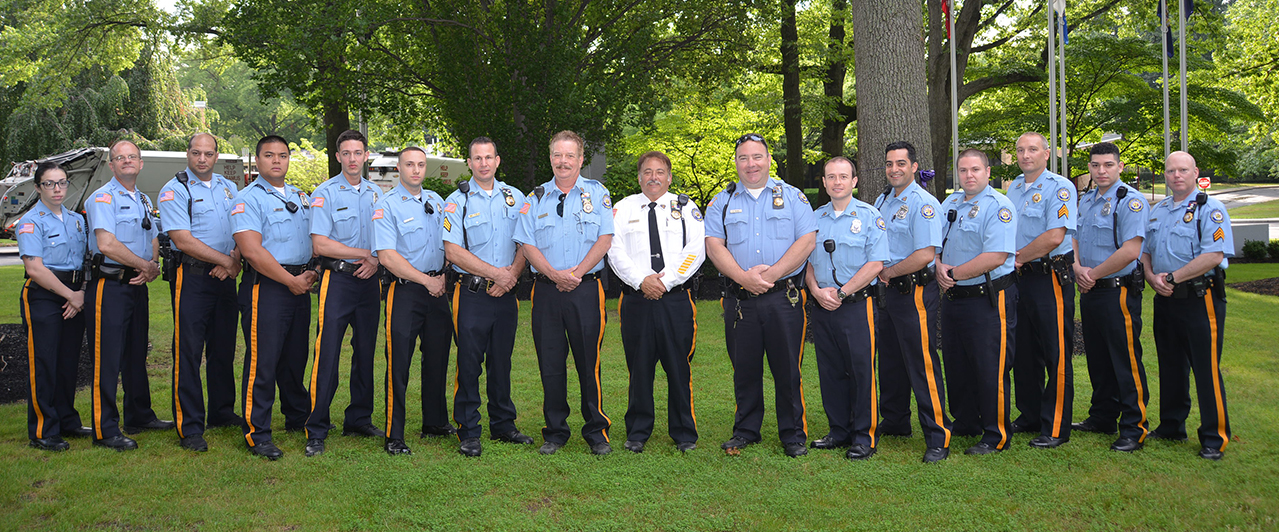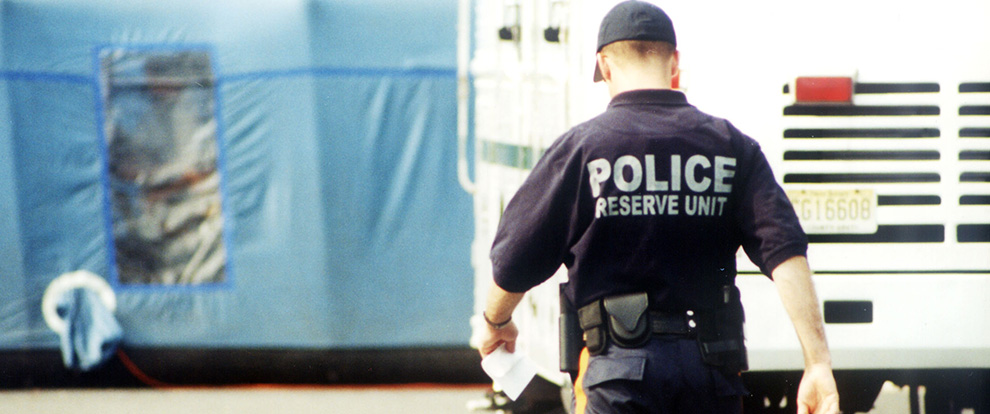The Police Reserve program began during World War II. Because of manpower shortages within the police department, volunteers were sought after for the purpose of forming an auxiliary police unit. The Police Reserves were very active throughout World War II by supporting police and civil defense activities.
In 1921, 25-year old Colonel H. Norman Schwarzkopf selected a class of 120 recruits and supervised their rigorous training at a camp at Sea Girt. Eighty-one completed the course and were assigned their duties as the first New Jersey State Troopers on December 5, 1921.
After World War II, the Police Reserves disappeared until the Korean war began. The Reserves were reactivated again in the early 1950’s. This “Special Police Unit” provided support personnel for both the Police and Civil Defense. Formalized training was first initiated during this time. The unit was formally organized along paramilitary lines and a chain of command was established.
From the mid 1950’s to the mid 1960’s the Police Reserve’s experienced mixed participation and interest. The duties of the Reserves were mainly to provide support for patrol activities, and traffic control during parades and local events. The Reserves were also considered a “Reserve Force” that could be utilized in the event of a natural disaster, civil disorders, or national attack.
From the 1960’s until the present, Police Reserve units are appearing all over the country. Volunteers must go through a training process before they can become active. Members still handle the same tasks as in the past, however, as times have changes, new responsibilities have been added.
Chief Cliff Cibelli celebrated 25 years of service with the Police Reserve Unit in 2003.


